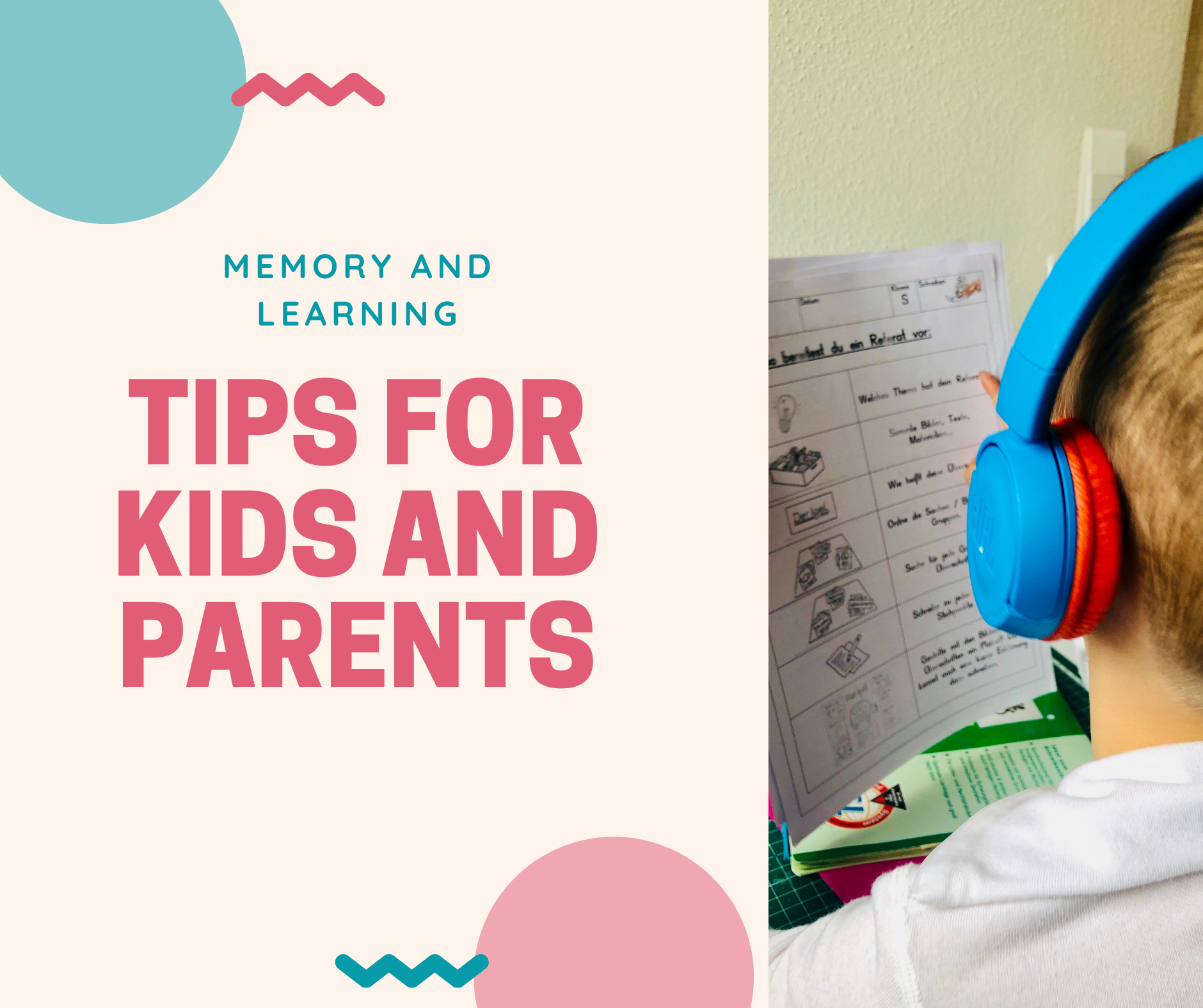What Does It Mean To Be Smart? Introduction to Learning Skills
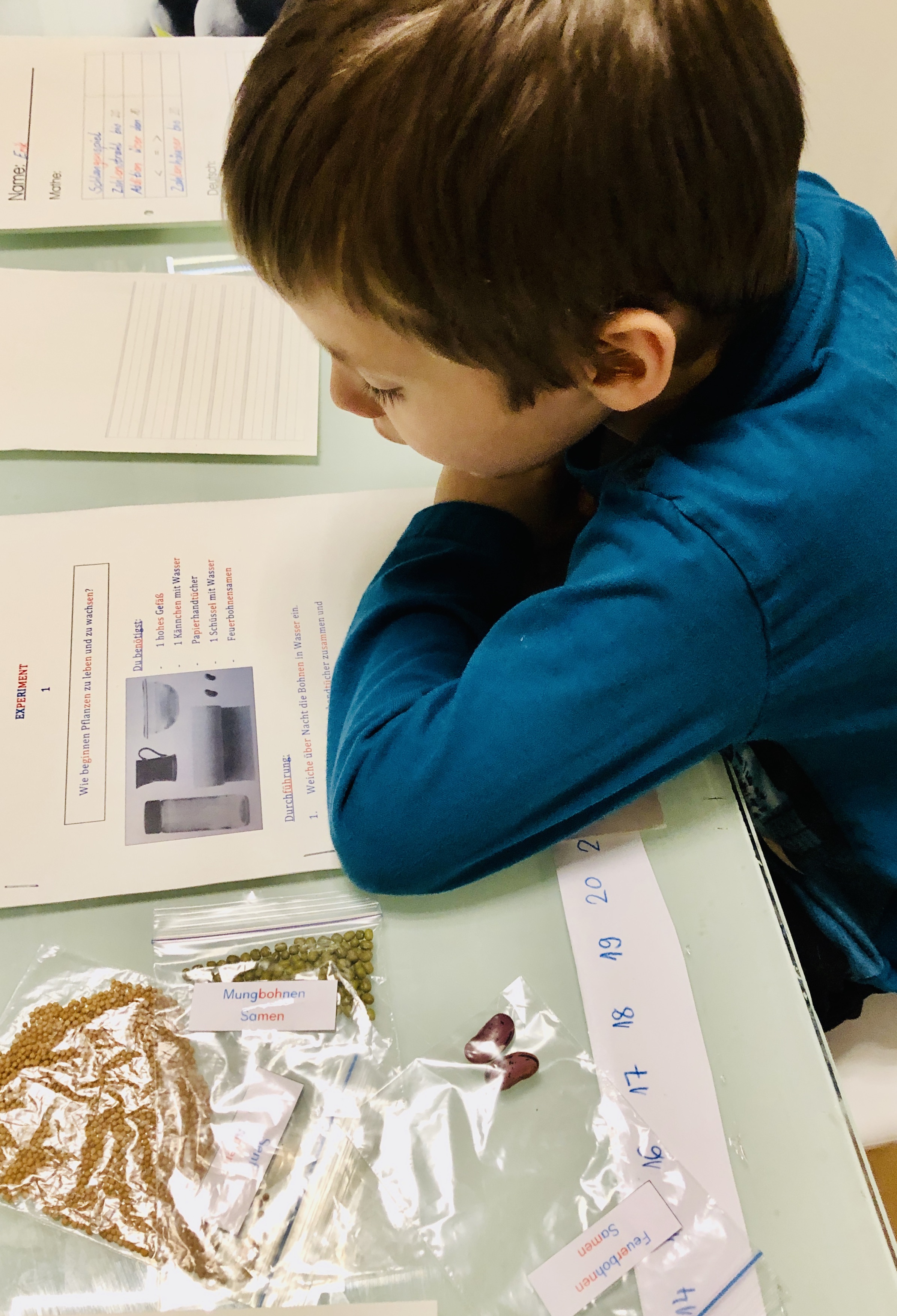
Do you remember those kids from your class who could memorise the relevant dates in history or recite all those formulas in chemistry and physics? Maybe you were one of them - the smart kids.
Schools
While reading about the learning styles, I came across an interesting title: What Does It Mean to Be Smart?[1] Even though the article was written twenty years ago, not much has changed. Ok, more computers have made an appearance, some teachers have started teaching using smart boards, but little else is new.
Students are still tested and classified in terms of two kinds of abilities—their ability to memorise information and, to a lesser extent, their ability to analyse it. During my last year as a teacher, one of my colleagues was foaming at the mouth because one of her students couldn't recite how the present simple is formed. She also taught English as a foreign language. "I don't care if he can use it; if he wants to pass, he has to know the definition." IMPORTANT: not all teachers are like this! Unfortunately, she was not the only one who had these kinds of expectations.
Even though some authors[1] talk about four types of learning skills - Memory, Analysis, Creativity, Practicality - many, if not most, children are still taught and assessed in ways that emphasise only memory and analysis. As a result, we label students who excel in these patterns of ability as smart or able. They also get better grades. On the other hand, learners who are weaker in these abilities are categorised as average or even slow or stupid. This means that so many creative and practically oriented kids, who are better able to learn a set of facts if they can see its relevance to their own lives, lose out.
Parents
For parents, watching their kid struggles can be painful. Knowing that the kid is fantastic - AND THEY ALL ARE - but the system keeps overseeing their potential, can be frustrating. Now, should we, as parents, do something about it?
From my experience in both roles, as a teacher and a parent, going hard against the system might do more harm than good. But there is something we should do - help our children feel good about themselves, teach them how to adapt and find their place in the sun. (I know, I know, you can call me a dreamer).
The thing is that research findings have demonstrated a positive association between parental involvement in education and academic achievement. This means that children whose parents are involved in their child’s education achieve better results in school[2]. And it’s not only about academic success – being involved in their school life, also leads to improving children’s self-esteem and their academic performance[3]. Now that we know why, let’s focus on how.
In terms of school and education, this can mean to support them in developing their learning skills and helping them keep their enthusiasm for learning.
Here are a few ideas which do not include sitting with children while they read the same paragraph over and over again until they learn it by heart.
Skill - memory
Mnemonic technique. Many people use mnemonic techniques to help them improve their memory. You can share some of these with your kid - they can help them remember how to spell tricky words in English, recall a name of an important person in history or memorise years and dates
- Using rhyme to memorise information. Here a few examples:
"In fourteen hundred and ninety-two, Columbus sailed the ocean blue."
„Thirty days hath September, April, June, and November;
All the rest have thirty-one,
Save February, with twenty-eight days clear,
And twenty-nine each leap year“
- Acronym Mnemonics
The spectrum of colours are as follows:
red
orange
yellow
green
blue
indigo
violet
You can remember them using this acronym: ROY G. BIV
If you want to remember the names of the great lakes, here's an acronym for you: HOMES
You can probably guess the names:
Huron
Ontario
Michigan
Erie
Superior
Swap the roles - ask your kid to become a teacher, and you get to be a student. They should teach you everything they remember about the subject.
Skill - Analysis
- When you go out for a walk by a pond, ask your kid to compare a life cycle of a butterfly and a dragonfly (or something else the kid learns in school).
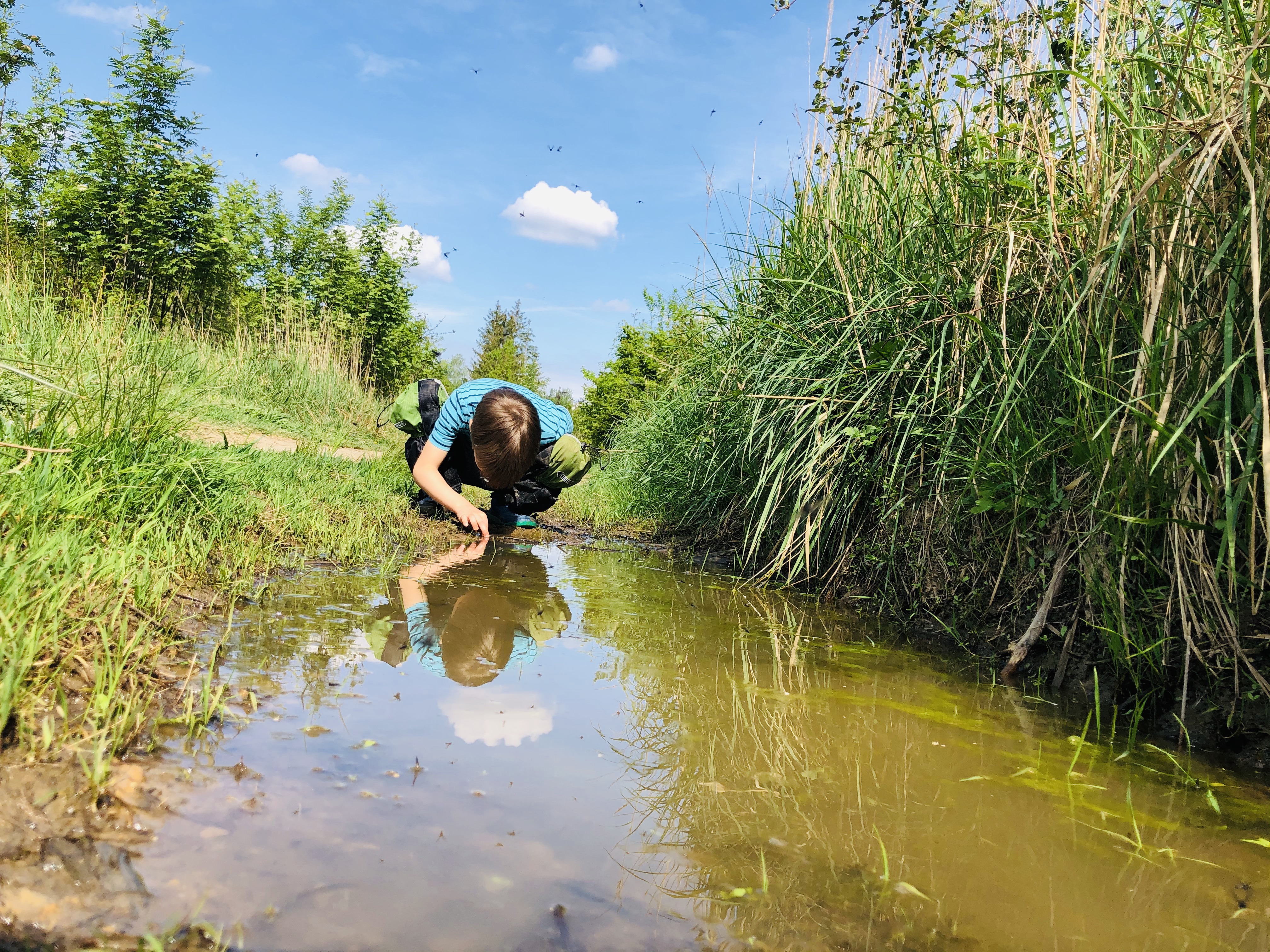
- Organise a debate. Compare, contrast, and evaluate the arguments for and against doing some chores. Move on to geography - analyse, compare and contrast the climate of Brazil and India.
- Watch a cartoon or film together. Encourage your child to talk about it asking them some of the questions with action verbs such as: analyse, arrange, breakdown, combine, detect, infer, outline, point out, separate...
- Solve a mathematical word problem using the D = RT formula (or any other formula the child learns in maths).
Skill - Creativity
- Ask your child to draw a lesson they learned in history. Who is in the picture? What is happening? When? And no, they don't have to be artists to make a drawing that can help them learn. Just have a look at my kid's artistic skills (1st grade, lesson about the history of potato)
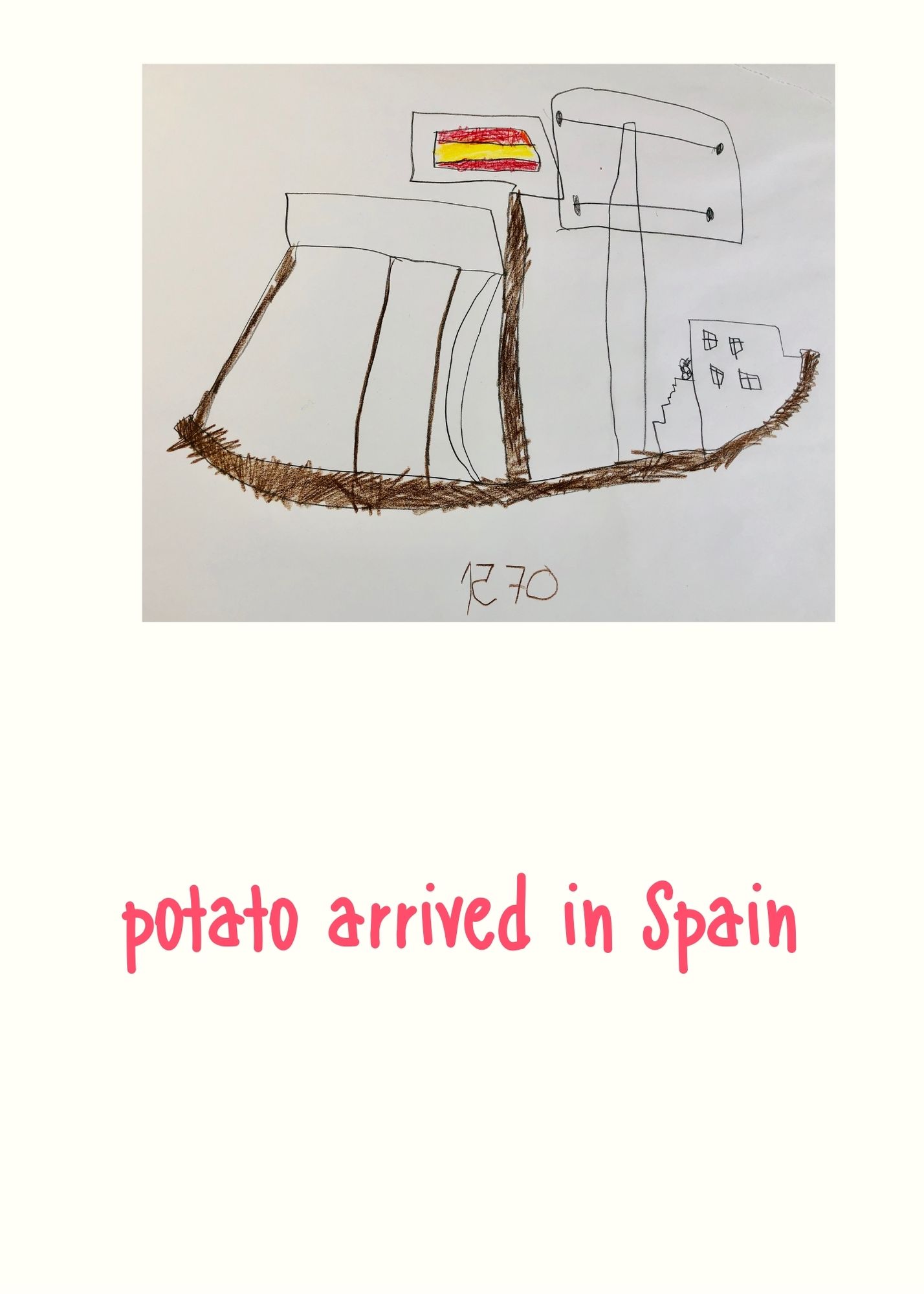
- Maybe they could create their own mathematical word problem and give you to solve it?
- Suggest writing a song which describes the voyages of Christopher Columbus.
- Together, create a board game for practising new vocabulary in a foreign language or numbers for their math lessons.
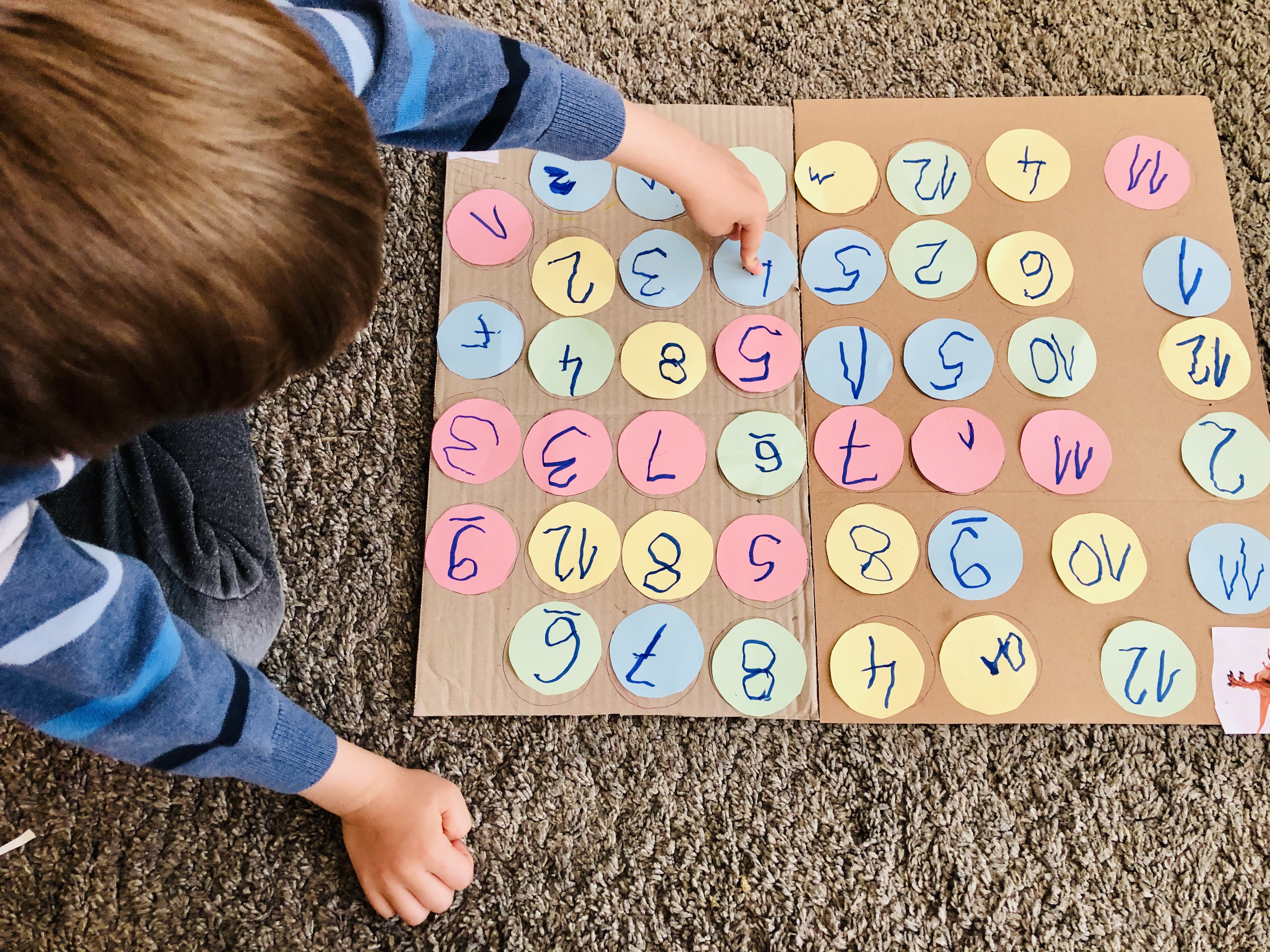
- Write a page of a journal from the view-point of a frog (if they are learning about ponds) or Pitagora.
Skill - Practicality
- Find gerunds in a newspaper or magazine article.
- Together, make a smoothie with all the fruits they learned in a foreign language lesson or make soup with the vegetables they learned.
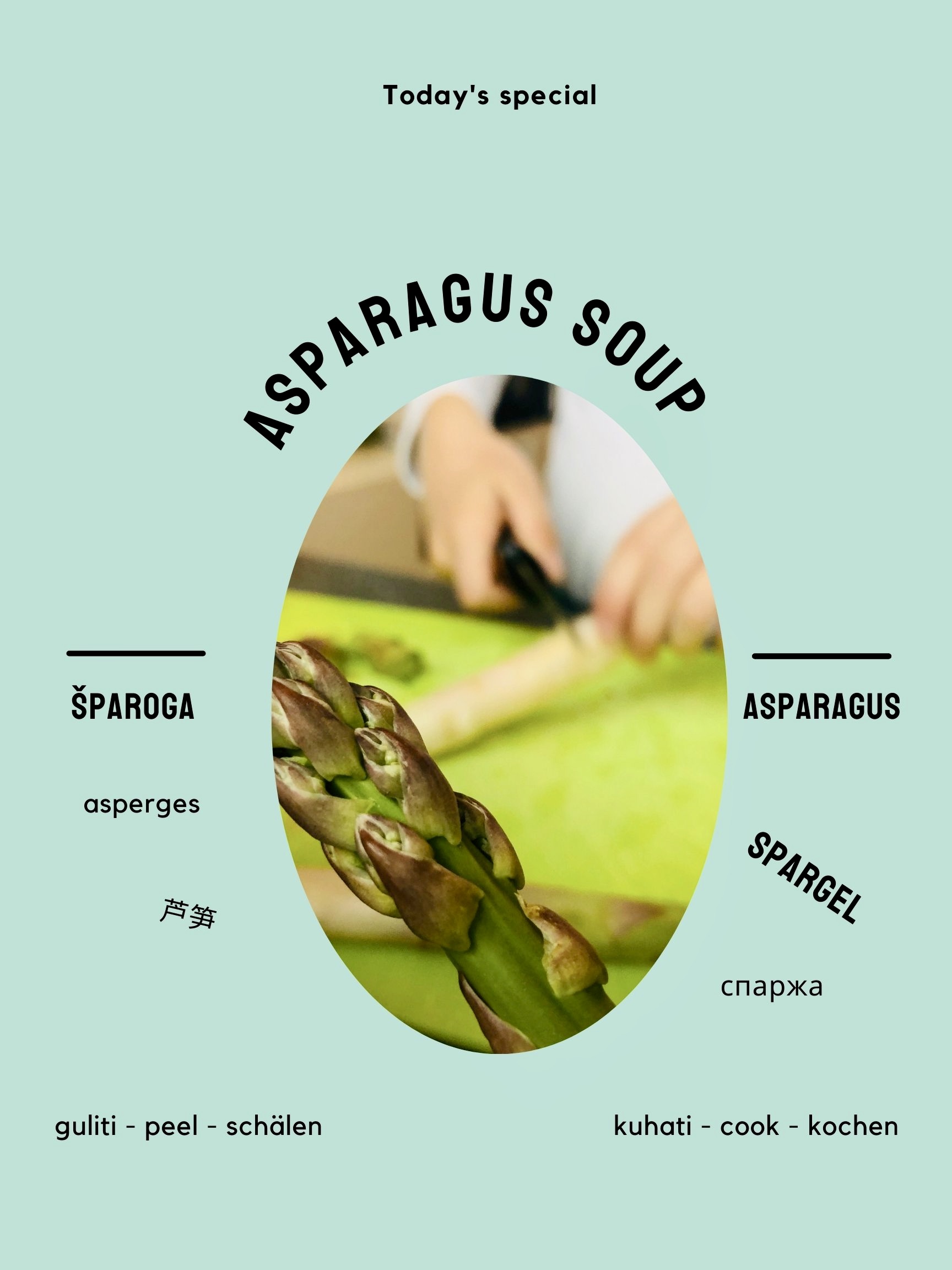
- Go to a restaurant and translate some of the menus.
- Play pretence and pack your suitcase for holidays in France in summer. What clothes do you need? What's the weather like there? What are you going to visit? Do you have to exchange currency?
- Go for a ride and use the D = RT formula to estimate driving time from one city to another near you.
As you can see, it doesn’t say - do their homework, study with them, question them after each lesson, argue with their teachers about grades, expect and accept only excellency…
Just be positive and enthusiastic about learning something new, show your kid how some of these techniques work, ask them if they find them useful and let the kid do the rest.
[1] Sternberg, R. (2002). What Does It Mean to Be Smart? California Journal of Science Education - What We Know About How People Learn. 99 - 109
[2] Tárraga, V., García, B., and Reyes, J. (2017). Home-based family involvement and academic achievement: a case study in primary education. Educ. Stud. 44, 361–375. doi: 10.1080/03055698.2017.1373636
[3] Garbacz, S. A., Herman, K. C., Thompson, A. M., and Reinke, W. M. (2017). Family engagement in education and intervention: implementation and evaluation to maximize family, school, and student outcomes. J. Sch. Psychol. 62, 1–10. doi: 10.1016/j.jsp.2017.04.002
